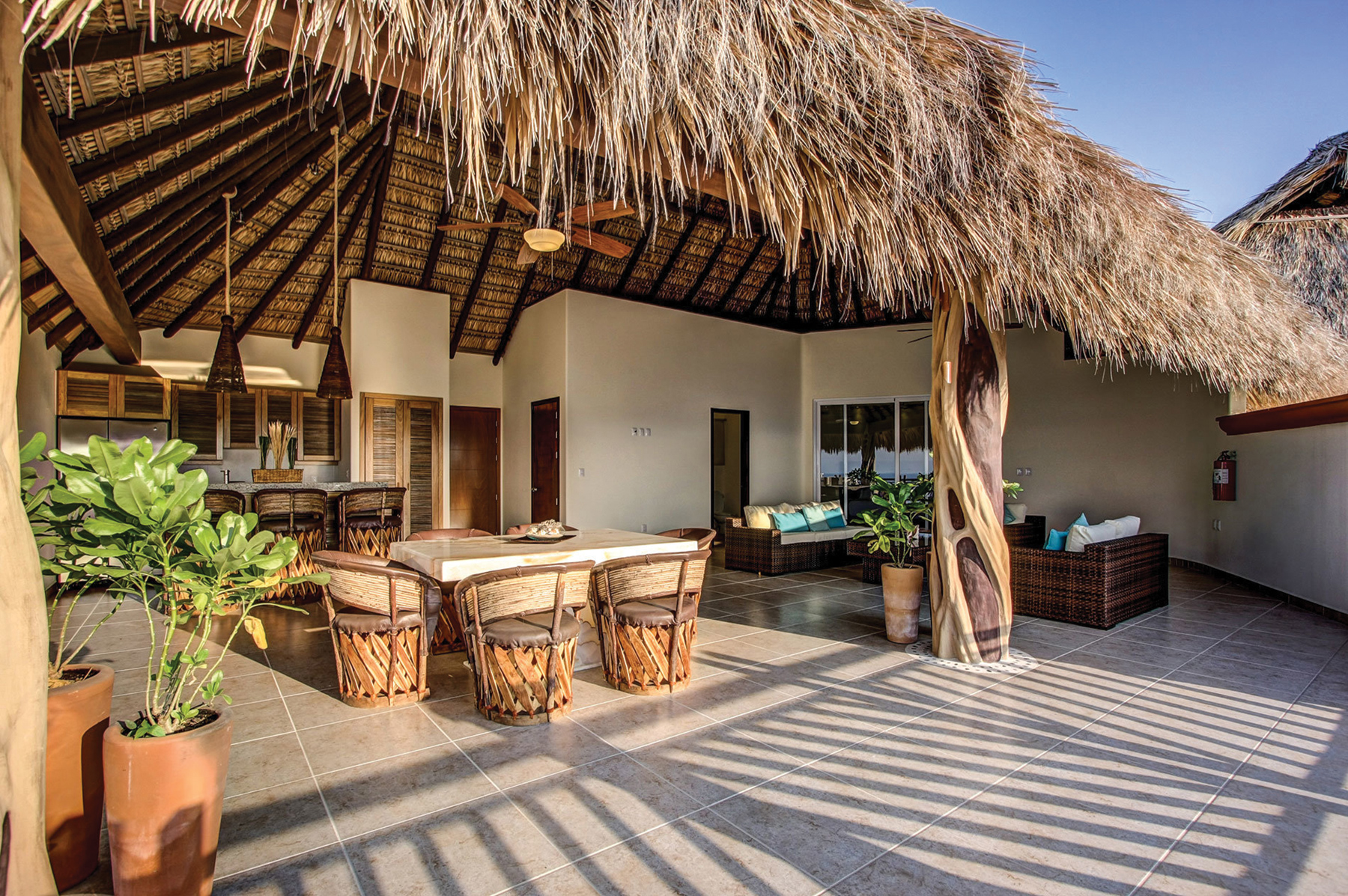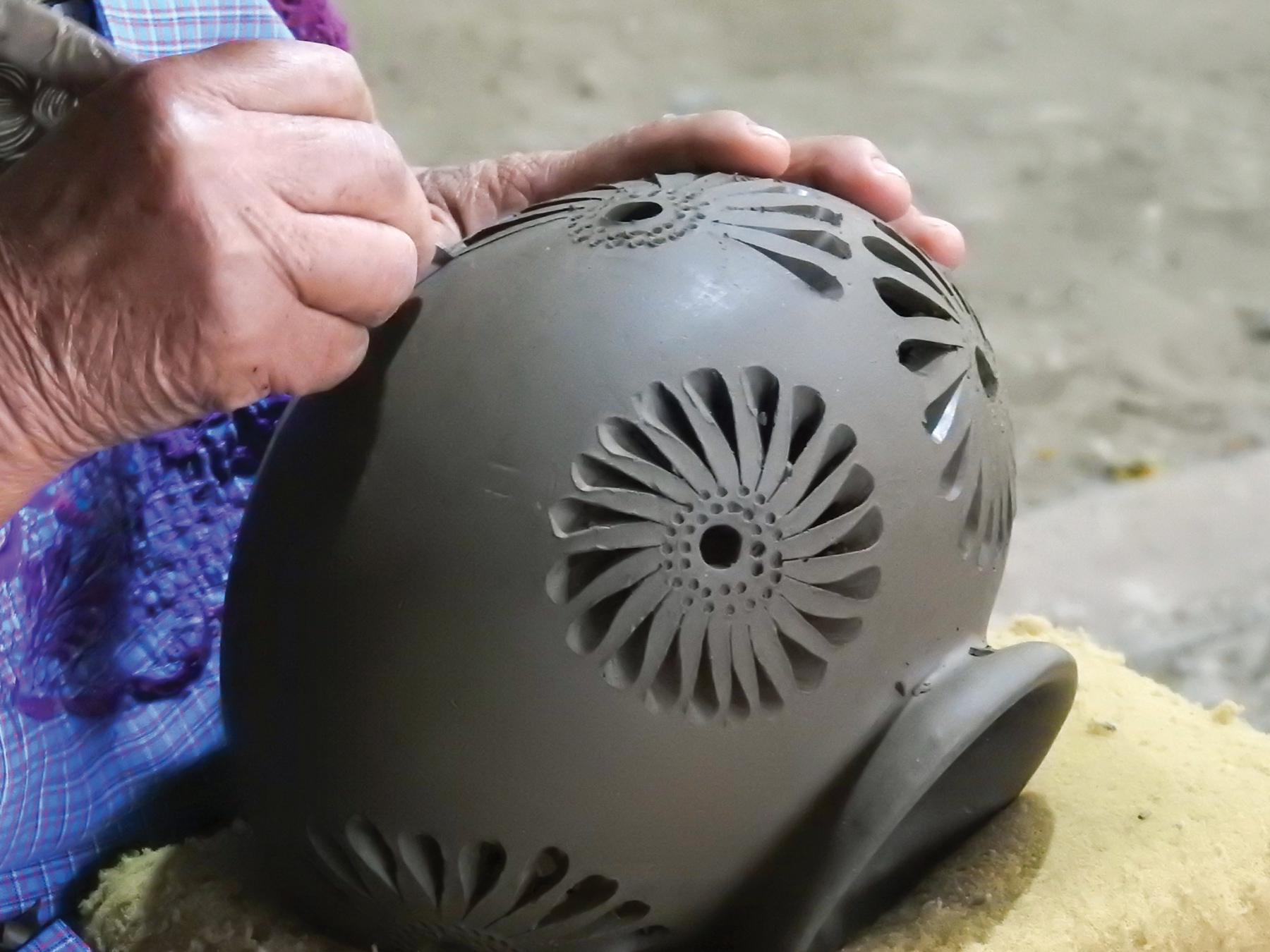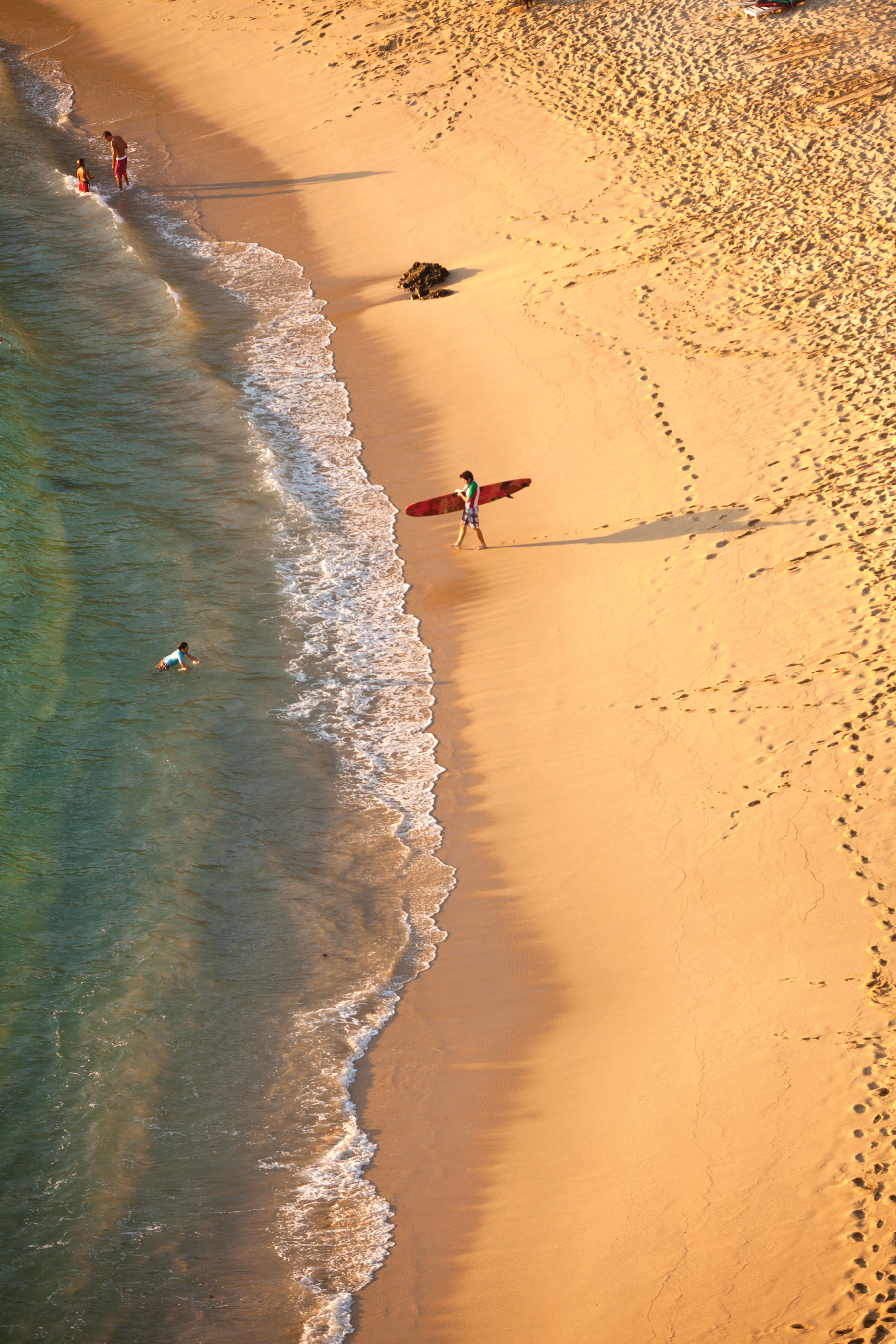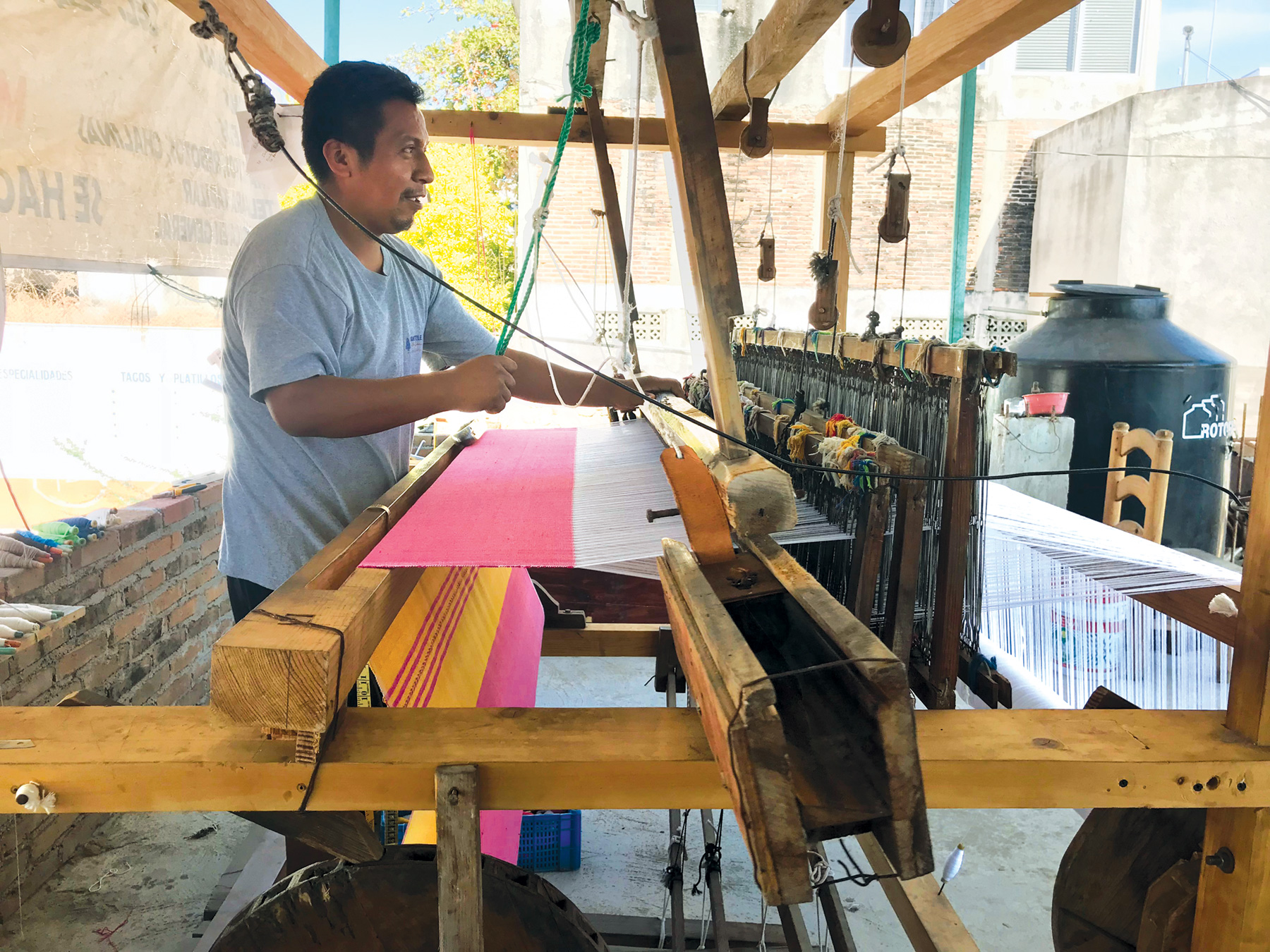Flying over the southern Pacific coast of Mexico, travellers get a bird’s-eye preview of the topographical contrasts awaiting them at their final destination. A magnificent panorama of rugged mountains dotted with farms and villages gives way to pristine beaches and the jewel-toned waters of the aptly named Emerald Coast.
When choosing accommodations in Oaxaca (pronounced “wah-hah-kah”), don’t settle for the popular hotels close to the international airport in Huatulco. Opt instead for the two-hour drive west on a winding road, past modest homes and colourful roadside fruit stands, to Puerto Escondido. A laid-back surfer-heaven small town, Puerto Escondido is home to Vivo Resorts, a new exclusive community of luxury condos and villas on 19 kilometres (12 miles) of pristine beach sandwiched between the ocean and the mountains of Sierra Madre del Sur.
Vivo Resorts, which is the brainchild of Canadian Olympic downhill skier Cary Mullen, is currently poised to make available 114 villas and approximately 600 condominiums for purchase and for rent. On-site amenities includes two pools, an event space, tennis and pickleball courts, a spa and a gym, and a farm-to-table restaurant focused on locally sourced ingredients, such as fresh fish and seafood. Regional specialties will be showcased, especially the savoury-sweet chocolate-based sauce, mole, and tortillas hot off the comal (griddle). But if Vivo guests and residents are so inclined, they can also do their own cooking in their suites’ kitchens.
If you need an occasional break from the beach, take the 15-minute, 50-peso shuttle ride from the resort to the town. With its population of just 50,000 — locals plus the North American expat community — Puerto Escondido maintains a lively, yet relaxed, vibe. It’s a favourite of surfers and snowbirds looking for peace and quiet, away from touristy Puerto Vallarta and Cancún.
Drop by the town’s main market, Mercado Benito Juarez, to browse the ubiquitous assortment of trinkets, but keep an eye out for local artisans with their traditional Oaxacan wares, such as barro negro (black clay) pottery, an ornate style dating back thousands of years. Try the regional culinary specialties on offer, like quesillo, a semi-soft, stringy cow’s-milk cheese, and, of course, mole, which locals claim originated in “the land of the seven moles, as Oaxaca is also known. Freshly grilled tortillas can be had here for just one peso. There’s also a corner in the market where, for 30 pesos per kilogram, you can take a stab, DIY style, using large grinders on-site, at turning corn into flour, and spices into powder.
Wend your way along the warren-like alleys outside the market to look for the popular Bi Nisa Café, which stocks local teas and coffee, as well as habanero sauce and hibiscus jam. Drop by Los Telares (The Looms) to browse locally woven blankets, table runners, shirts and dresses. Ask if you can go upstairs to watch the weavers at work. Oaxaca State still has a robust handcrafted-textile industry, and many of its products are on display on the adoquín (which means “cobblestone”). Close to Playa Principal, one of the city’s beaches, the local adoquín is open to vehicular traffic in the daytime until 5 p.m., which is when artisans set out their wares for locals and tourists to peruse.
But no visit to Mexico, including Oaxaca, is complete without sampling one of the country’s most famous liquors, mezcal, which is distilled from agave. (Tequila is made from blue agave; mezcal can be produced from different agave varieties.) About 30 minutes from Vivo is Paraiso Escondido, a roadside mezcal operation, where agave plants are cooked, mashed and fermented in traditional copper and clay pots. This 20-year-old family business usually caters only to the local market but is generous with visitors and offers up samples of their dozen or more flavoured mezcal varieties for sale.
Meanwhile, surfers, sunbathers and sunset- seekers have plenty of options, given the town’s myriad beaches, all within minutes of each other. Playa Zicatela is considered the top surfing destination in Mexico, and locals are quick to point out that it’s one of the top three places in the world to catch a wave. Beginners can go for a lesson on a smaller beach with calmer waves, to nearby Plaza Carrizalillo, which is famous for its entry point — a 167-step stone staircase. The reward? The perfect lunch spot, Villas Carrizalillo. Go for the chicken mole and a paloma, which translates as “dove” but is in fact a not-gentle cocktail based on tequila. Sweeping views of the beach below are gratis.
Head back to Vivo to participate in the resort’s weekly sunset ceremony — releasing just- hatched baby turtles into the ocean. The Vivo Foundation — Vivo Resorts’ charitable arm — supports a local group that watches over turtle incubation sanctuaries, protecting them from predators both human and animal.
Watch the hatchings flip-flop their way down the sand and into the water and marvel at how they heed the call of instinct and Mother Nature. Then stay on the beach long after the turtles have gone and you will realize that you too heeded the call of Mexico’s Pacific coast and that you’re glad you did.
By Andrea Janus – *This article originally appeared in INSIGHT: The Art of Living | Winter 2018
Photography by: Ferran Traite/iStock; Vivo Resorts; Esdelval/iStock; National Geographic Image Collection/Amay; Andrea Janus;







